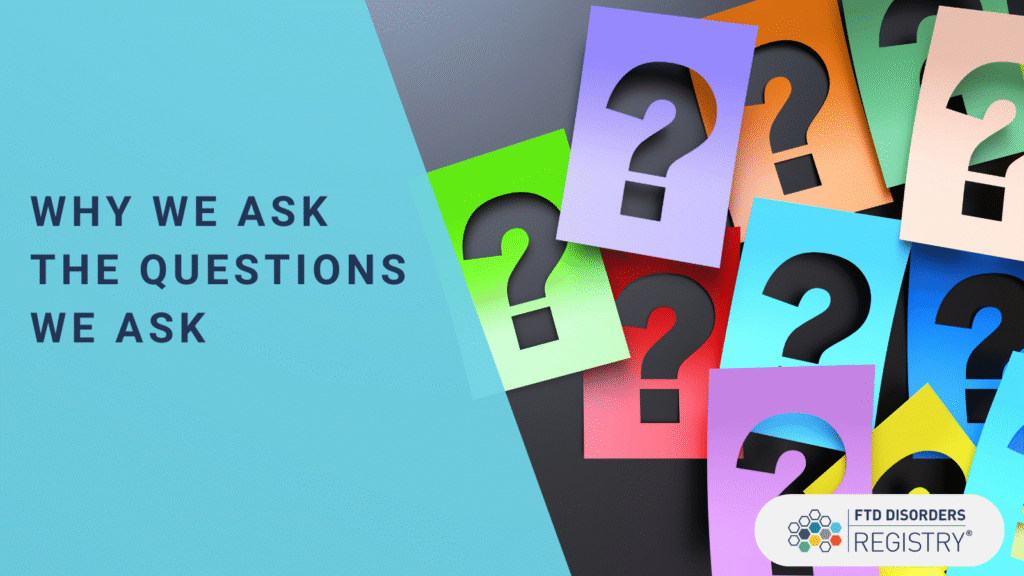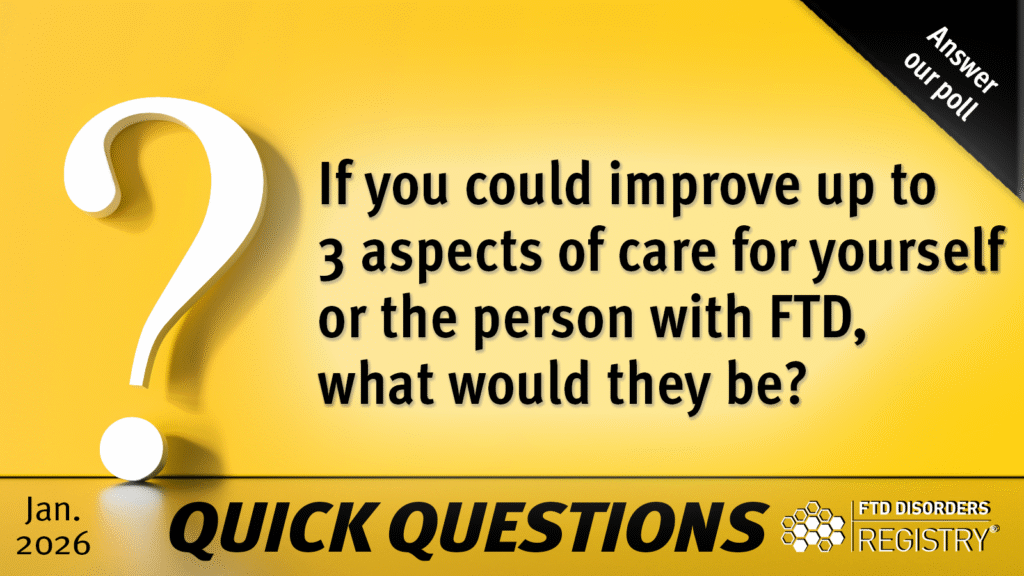NUMBERS HAVE POWER.
JOIN THE REGISTRY.
ADVANCE THE SCIENCE.
Together we can find a cure for ftd
The FTD Disorders Registry is a powerful tool in the movement to create therapies and find a cure. Together we can help change the course of the disease and put an end to FTD.
Your privacy is important! We promise to protect it. We will not share your contact information.
The Registry is an online database that collects information from those affected by all types of frontotemporal degeneration (FTD):
Persons diagnosed, current and former caregivers, family, and friends can join. As a member of the Registry, you can help us advance the science and move faster toward finding treatments and cures. The first step is simple:
NUMBERS HAVE POWER.
JOIN THE REGISTRY.
ADVANCE THE SCIENCE.
NUMBERS HAVE POWER.
JOIN THE REGISTRY.
ADVANCE THE SCIENCE.
Together we can find a cure for ftd
The FTD Disorders Registry is a powerful tool in the movement to create therapies and find a cure. Together we can help change the course of the disease and put an end to FTD.
Your privacy is important! We promise to protect it. We will not share your contact information.
The Registry is an online database that collects information from those affected by all types of frontotemporal degeneration (FTD):
Persons diagnosed, current and former caregivers, family, and friends can join. As a member of the Registry, you can help us advance the science and move faster toward finding treatments and cures. The first step is simple:
AND NOW WE WORK TOGETHER >
Will you join the community working to end FTD?
UPDATES
Being Counted is an Act of Hope
Being counted is an act of hope, a way for individuals and families impacted by frontotemporal degeneration to turn their lived experience into momentum for research, visibility, and a future with better diagnosis, care, and treatments.
Why We Ask the Questions We Ask
Ever wonder why the Registry asks about finances or work life? Here’s how those questions help move FTD research forward.
Quick Question January 2026 Result:
The highest response was access to specialists with FTD experience with 20.4%. There was also strong support for emotional or mental health support for patient and/or caregiver at 15.2% and …
Being Counted is an Act of Hope
Being counted is an act of hope, a way for individuals and families impacted by frontotemporal degeneration to turn their lived experience into momentum for research, visibility, and a future with better diagnosis, care, and treatments.
Why We Ask the Questions We Ask
Ever wonder why the Registry asks about finances or work life? Here’s how those questions help move FTD research forward.
Being Counted is an Act of Hope
Being counted is an act of hope, a way for individuals and families impacted by frontotemporal degeneration to turn their lived experience into momentum for research, visibility, and a future with better diagnosis, care, and treatments.
THE FTD REGISTRY IS A PARTNERSHIP OF:














